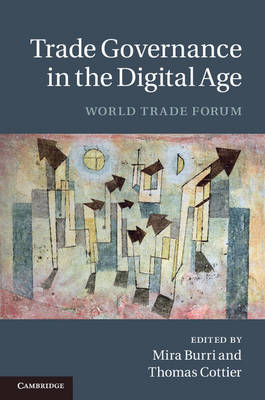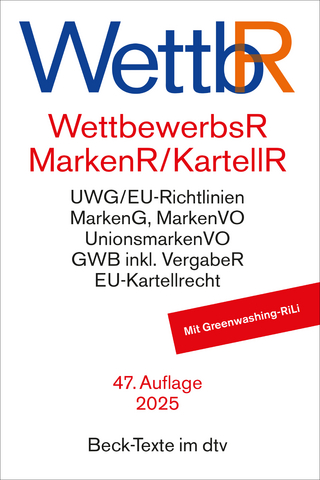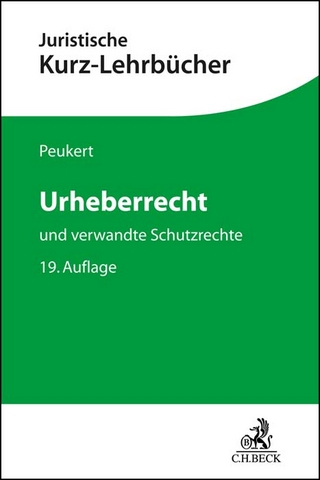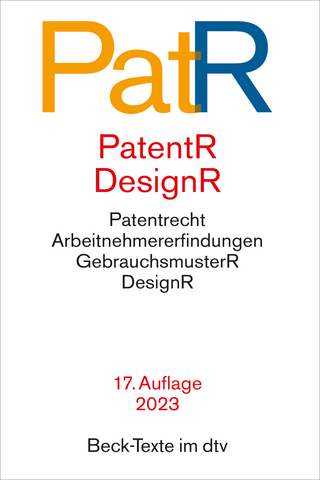
Trade Governance in the Digital Age
Cambridge University Press (Verlag)
978-1-107-02243-0 (ISBN)
- Titel z.Zt. nicht lieferbar
- Versandkostenfrei innerhalb Deutschlands
- Auch auf Rechnung
- Verfügbarkeit in der Filiale vor Ort prüfen
- Artikel merken
The development of new digital technologies has resulted in significant transformations in daily life, from the arrival of online shopping to more fundamental changes in the ways we work and communicate. Many of these changes raise questions that transcend market access and liberalisation, and demand cooperation and coherent regulatory design. International trade regulation has hitherto not reacted in a forward-looking manner to the digital revolution and, particularly at the multilateral level, legal engineering has yielded few tangible results. This book examines whether WTO laws possess the necessary flexibility and resilience to accommodate the changes brought about by burgeoning digital trade. By revealing both the potential and the limitations of the WTO framework, it provides a broad picture of the interaction between digital technologies and trade regulation, links the often disconnected discourses of international trade law, intellectual property and cyberlaw and explores discrete problems in different domains of global trade regulation.
Mira Burri is a senior research fellow at the World Trade Institute and Lecturer in International Media Law at the University of Bern, Switzerland. Thomas Cottier is Professor of European and International Economic Law at the University of Bern, Switzerland. He is Managing Director of both the World Trade Institute and of the Institute of European and International Economic Law.
1. Introduction: digital technologies and international trade regulation Mira Burri and Thomas Cottier; Part I. Conceptualising Trade 2.0: 2. Principles for trade 2.0 Anupam Chander; 3. Global information law: some systemic thoughts Christian Tietje; Part II. Old and New Buzzwords in the Digital Trade Discourse: 4. Convergence: a buzzword to remain? David Luff; 5. Network neutrality: the global dimension Pierre Larouche; 6. Fostering innovation and trade in the global information society: the different facets and roles of interoperability Urs Gasser and John Palfrey; Part III. The State of Play in Trade and Trade Regulation. Prospects for Change: 7. GATS classification issues for information and communication technology services Lee Tuthill and Martin Roy; 8. Towards coherent rules for digital trade: building on efforts in multilateral versus preferential trade negotiations Sacha Wunsch-Vincent and Arno Hold; 9. Better regulation for digital markets: a new look at the Reference Paper? Rohan Kariyawasam; 10. Googling for the trade-human rights nexus in China: can the WTO help? Henry Gao; 11. The puzzling interaction of trade and public morals in the digital era Panagiotis Delimatsis; Part IV. The Impact of Digital Technologies on the Global Intellectual Property Regime: 12. TRIPS encounters the Internet: an analogue treaty in a digital age, or the first trade 2.0 agreement? Antony Taubman; 13. Country clubs, empiricism, blogs and innovation: the future of international intellectual property norm-making in the wake of ACTA Daniel Gervais; 14. New forms of governance for digital orphans: copyright litigation, licenses and legal information Jeremy De Beer; Part V. Digital Technologies, Intellectual Property and Development: 15. From consensus to controversy: the WIPO Internet Treaties and lessons for intellectual property norm-setting in the digital age Ahmed Abdel Latif; 16. The global digital divide as impeded access to content Mira Burri; 17. Harnessing information and communication technologies for development: the trade-related technical assistance perspective Martin Labbé; 18. Making use of e-mentoring to support innovative entrepreneurs in Africa Philipp Aerni and Dominik Rüegger.
| Zusatzinfo | 12 Tables, black and white; 1 Line drawings, unspecified |
|---|---|
| Verlagsort | Cambridge |
| Sprache | englisch |
| Maße | 160 x 233 mm |
| Gewicht | 790 g |
| Themenwelt | Recht / Steuern ► EU / Internationales Recht |
| Recht / Steuern ► Wirtschaftsrecht ► Urheberrecht | |
| Wirtschaft ► Volkswirtschaftslehre ► Makroökonomie | |
| ISBN-10 | 1-107-02243-6 / 1107022436 |
| ISBN-13 | 978-1-107-02243-0 / 9781107022430 |
| Zustand | Neuware |
| Haben Sie eine Frage zum Produkt? |
aus dem Bereich


